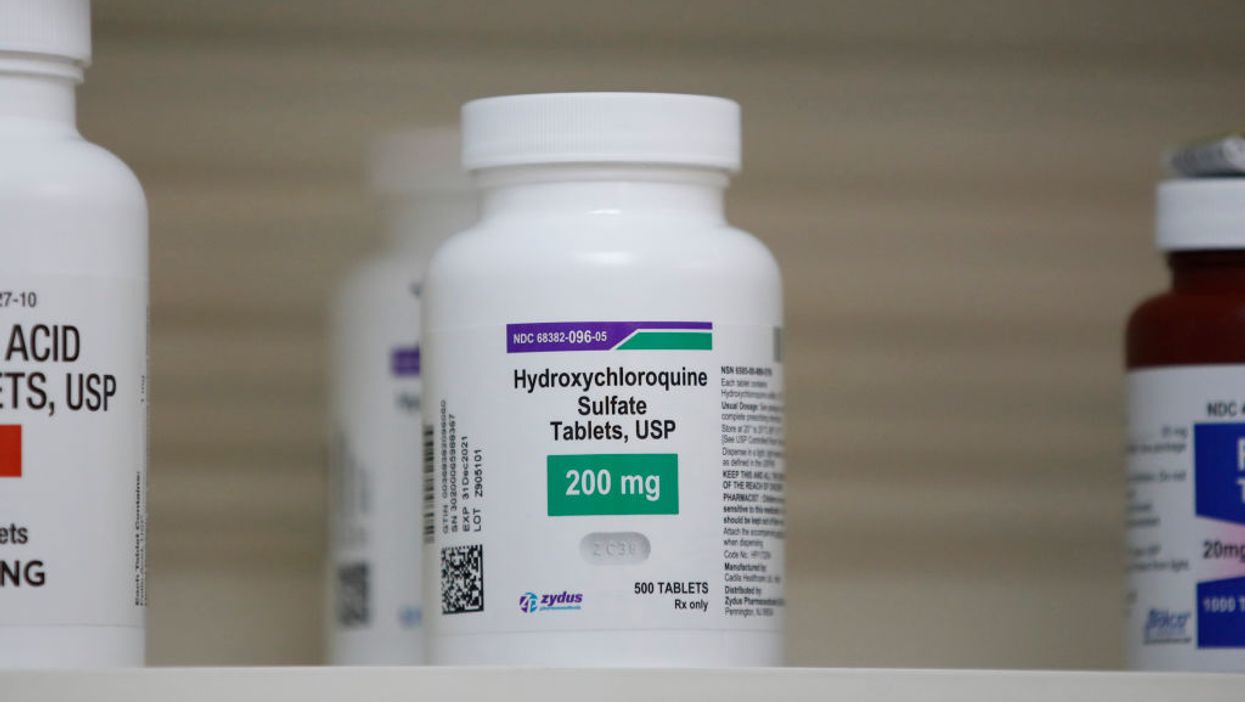
Photo by GEORGE FREY/AFP via Getty Images

Oh boy
One of the world's leading medical journals has issued an "expression of concern" about its hydroxychloroquine findings after it was revealed that it may have used faulty data in its study.
Last month, the Lancet published a study that purported to find that the anti-malarial drug often touted by President Trump was ineffective in treating COVID-19, and also increased the risk of death in patients.
This was a major report. In fact, the findings led the World Health Organization to halt a major international study on the drug and resulted in several countries banning the use of the drug to treat the coronavirus. Trump was openly chastised by the media for promoting a drug that was now allegedly proven to be deadly.
But after more than 100 scientists and clinicians questioned the quality of the information used in the study, the leading journal was forced on Tuesday to put out a notice about its work.
In its "expression of concern," the Lancet wrote "to alert readers to the fact that serious scientific questions have been brought to our attention" regarding its publication. The journal also noted that "an independent audit of the provenance and validity of the data has been commissioned."
What drew ire from outside researchers and scientists was the study's use of a massive hospital database owned by a small company based in Chicago called Surgisphere. Scientists began to take note when Surgisphere's data on tens of thousands of hospitalized patients from around the world did not square with government reporting.
A second study using Surgisphere's data published by the New England Journal of Medicine also had an "expression of concern" issued on it. That study was unrelated to hydroxychloroquine, but researched the effect ACE inhibitors may have on COVID-19 patients with underlying cardiovascular disease.
NEJM similarly wrote that "substantive concerns have been raised about the quality of the information" in the Surgisphere database researchers used.
Both the Lancet and the NEJM studies were co-authored by Surgisphere's chief executive, Sapan Desai.
Publicly available information about the company reported by the Guardian suggests that Surgisphere is a sham company and raises questions about how leading journals came to be associated with the firm.
Here are some of the highlights from the Guardian report:
Surgisphere's employees have little or no data or scientific background. An employee listed as a science editor appears to be a science fiction author and fantasy artist. Another employee listed as a marketing executive is an adult model and events hostess.
The company's LinkedIn page has fewer than 100 followers and last week listed just six employees. This was changed to three employees as of Wednesday.
While Surgisphere claims to run one of the largest and fastest hospital databases in the world, it has almost no online presence. Its Twitter handle has fewer than 170 followers, with no posts between October 2017 and March 2020.
Until Monday, the "get in touch" link on Surgisphere's homepage redirected to a WordPress template for a cryptocurrency website, raising questions about how hospitals could easily contact the company to join its database.
It should be noted that the Lancet study on hydroxychloroquine is not the only large-scale study to release disappointing results about the drug's effectiveness in treating COVID-19.
An analysis, published in the Journal of the American Medical Association on May 12, found no noticeable benefit from the drug and also concluded that the drug, when used in combination with the antibiotic azithromycin, may cause increased cardiac risk in some patients.
Nonetheless, the Lancet's use of faulty data is sure to call into questioning both its findings about the drug as well as its reputation as a trusted source for accurate medical information.